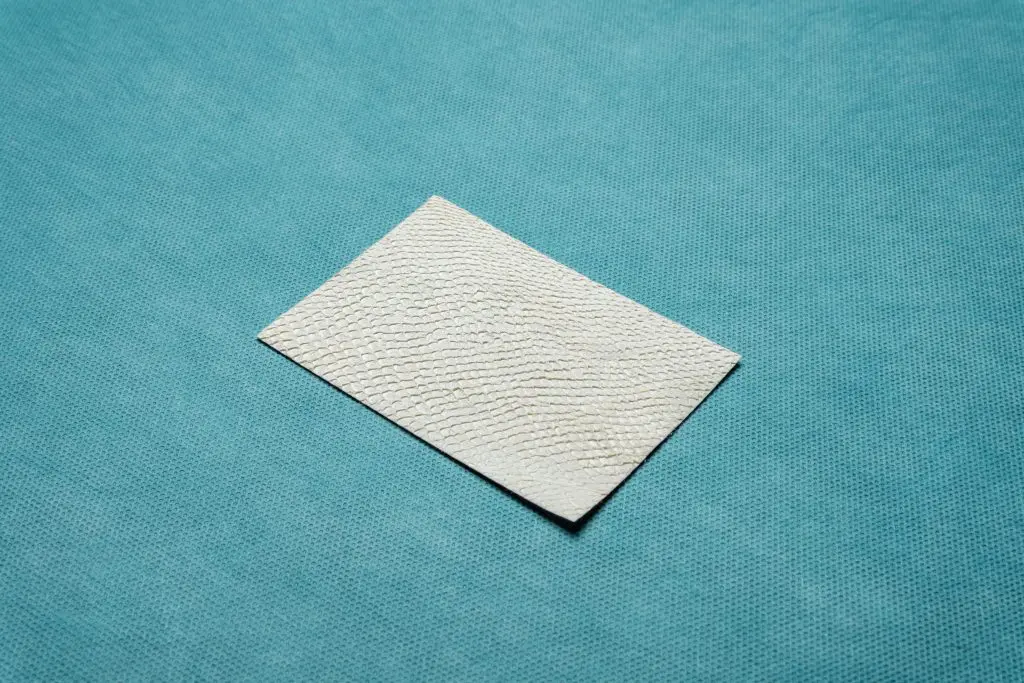
ARLINGTON, Va. and ISAFJORDUR, Iceland, July 09, 2018 — A double-blind, prospective, randomized clinical study found that wounds treated with Kerecis® Omega3 Wound healed significantly faster than wounds treated with EpiFix® from MiMedx®. The Kerecis product is made from intact fish skin; EpiFix is made from human amnion membrane. Kerecis will unveil detailed results of the study at the annual scientific meeting of the American Podiatric Medical Association (APMA) July 12-15 in Washington, D.C. (booth 741).
Dermal regeneration usually fails in full-thickness wounds, resulting in scar formation. The study design is established and validated for comparative dermal regeneration in full thickness tissue injury. Specifically, the study compared the length of time needed for 170 full-thickness wounds to heal, which was defined as “full epithelialization.” Each of the 85 participants had two 4mm wounds where one wound was treated with the fish-skin product and the other with the human amnion membrane. The full-thickness wounds were evaluated at days 7, 14, 18, 21, 25 and 28.
Study Results
The study found that the fish-skin cohort both promoted faster wound healing and had more wounds brought to full healing in 28 days. The fish-skin cohort healed significantly faster with a significant hazard ratio of 2.34 and a p-value of 0.0014. By the end of the study, 10 percent more fish-skin-treated wounds had healed than amnion-membrane-treated wounds.
Specifically:
“Amnion-membrane products have enjoyed increased clinical adoption in recent years,” said Dr. John C. Lantis II (MD, FACS), Director of Clinical Research at Mt. Sinai St. Luke‘s and West Hospitals, one of the study investigators. “In this blinded, healthy, cohort study the acute wounds treated with fish-skin grafts healed faster than wounds treated with amnion membrane. We believe comparative studies such as these can help health care practitioners better select the most efficacious treatment for their patients.”
The study was approved by the Icelandic Medicines Agency and the Icelandic National Bioethics Committee. The study was performed at Landspitali – the National University Hospital of Iceland and was sponsored by a grant from the Icelandic Technology Development Fund.
From the town of Ísafjörður in northwest Iceland, Kerecis develops, manufactures, and distributes patented fish-skin medical devices that support soft tissue regeneration in the body, with regulatory approvals in the United States, Europe, and beyond.